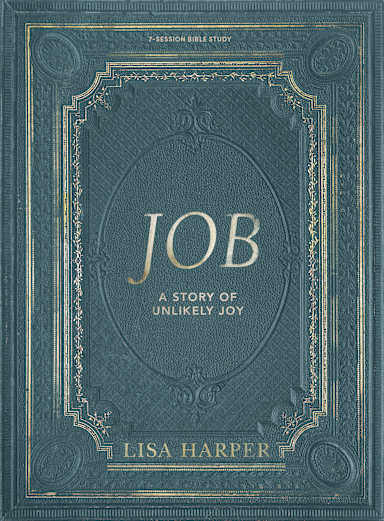When I was 11 years old my uncle accidentally ran me over. He was staying with us because he became an alcoholic after fighting in the Korean War, which led to the loss of his family and eventually homelessness. So my dad brought him to live with us in the hopes of helping him dry out. But my sweet uncle just couldn't make it through the day without medicating with booze. And one Valentine's Day when I was in the sixth grade, he and my dad were arguing over the fact that he was drunk yet again in the middle of the afternoon. In anger, he drove off in his Buick®. He didn't see me bending down to pick up a Frisbee® behind his car so he backed over me, then he put the car in drive to speed away from my yelling father, not realizing dad was running toward him screaming and waving his hands because I was underneath his car.
My back was fractured in five places that day, and I've had two major surgeries since—one on my lower back and one to put a titanium plate in my neck to fuse C4, 5, and 6 together. As one physician put it, "That accident drained the bank account of your back, honey, and any check you write on it now is gonna bounce." However, the pain of two complete discectomies, having my throat cut, and six screws drilled into my neck vertebrae to fasten a titanium plate on the front of my neck was totally different than the pain of the car accident. The accident caused a rupturing kind of pain, while the pain of the surgeries was rehabilitative. One tore me apart, while the other put me back together.
How God Uses Rehabilitative Pain
After months and months of study, I'm still not sure whether to put Elihu in a white hat or a black hat. But I have decided that despite his questionable methodology, some of his message is spot on—especially in how he insists that when God allows us to suffer it is not punitive.
"For God speaks time and again, but a person may not notice it. In a dream, a vision in the night, when deep sleep comes over people as they slumber on their beds, he uncovers their ears and terrifies them with warnings_, in order to turn a person from his actions and suppress the pride of a person. God spares his soul from the Pit, his life from crossing the river of death. A person may be disciplined on his bed with pain and constant distress in his bones, so that he detests bread, and his soul despises his favorite food. His flesh wastes away to nothing, and his unseen bones stick out. He draws near to the Pit, and his life to the executioners. If there is an angel on his side, one mediator out of a thousand, to tell a person what is right for him and to be gracious to him and say, "Spare him from going down to the Pit; I have found a ransom," then his flesh will be healthier than in his youth, and he will return to the days of his youthful vigor." (_ Job 33:14-25, Emphasis mine)
I love the imagery of verse 16—God uncovers our ears with pain. In other words, He gets our attention with hardship. You've probably heard the old adage that when you're flat on your back, you're forced to look up. Or when you get to the end of yourself, you get to the beginning of God. While these sayings may sound like simple platitudes, they're actually rooted in redemptive narrative. It wasn't until Abraham was holding a knife over his own son's neck that he recognized God's merciful provision. It wasn't until Moses was exiled on the back side of the desert that God called him into full-time ministry. It wasn't until Jonah was neck deep in whale bile that he became obedient to God's will. It wasn't until Peter threw Jesus under a (figurative) bus that he was restored and became the rock of the early church. It wasn't until Paul was flat on his back frantically rubbing his eyes on the shoulder of the Damascus Freeway that he encountered the living Messiah. When everything falls apart, God gets our full attention!
And while all pain isn't divinely causative—God doesn't cause evil like human trafficking or disease like cancer—all pain does have a divine purpose.
The pain that sifts through our Redeemer's hands is not punitive because Jesus took all the punishment we deserved on the cross. Therefore the idea that bad things have happened to us because God is punishing us is not theologically sound. However, suffering can be a very rehabilitative means of grace as the psalmist attests to in Psalm 119:
"I know, Lord, that your judgments are just and that you have afflicted me fairly." (Psalm 119:75)
We may feel like we're being torn apart, but in actuality, we're being torn away from whatever was pulling us apart from God. Which means that the ultimate end of suffering is spiritual healing and wholeness.
What did God "say" to you the last time He uncovered your ears through hardship? When have you experienced rehabilitative pain?
Adapted from Job: A Story of Unlikely Joy. © 2018 Lisa Harper. Published by Lifeway Press. Used with permission.
Joy is the constant companion of the woman who trusts in the Lord. And while you can find it in friends, family, and circumstances, unfailing, persistent joy will only ever overflow from your relationship with Jesus.
Just ask Job, the man from Uz who clung to God's goodness while all his worldly joys were stripped away. But how is it possible to hold onto such joy in times of sorrow? In this 7-session study by Lisa Harper, discover the redemptive side to Job's story of suffering. Learn to use pain to strengthen your faith, point others to the gospel, and remember God's providence will never take you to a place where His grace will not sustain you.
Preview a free session from the study.
In Job, 7-session study by Lisa Harper, discover the redemptive side to Job’s story of suffering.

